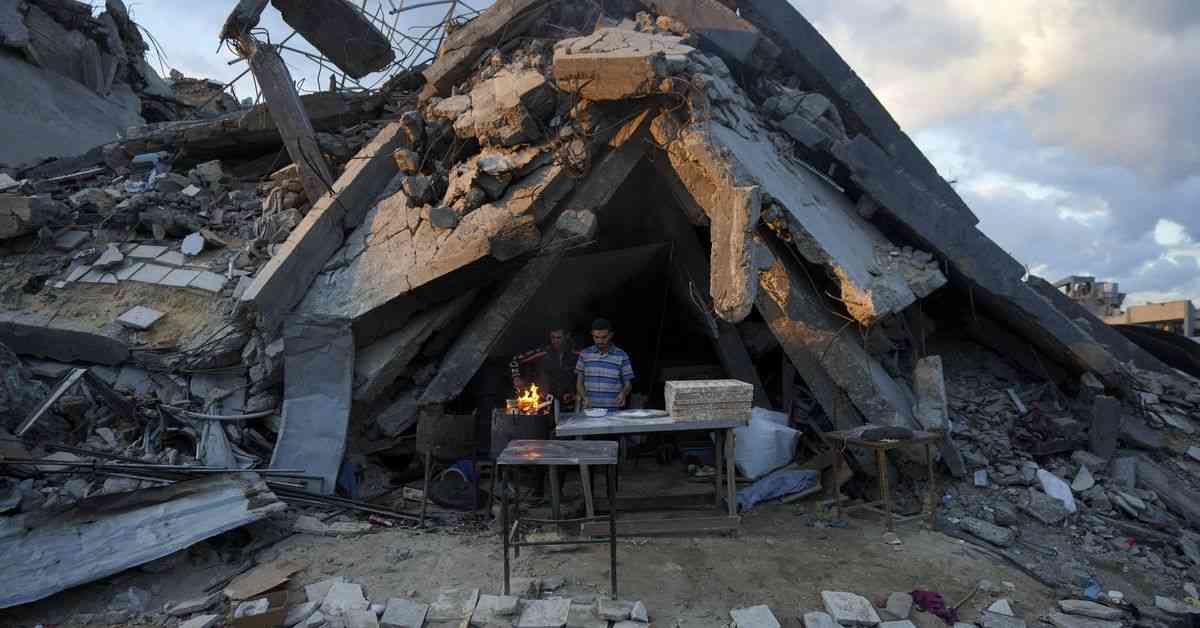Israel Prepares for Gaza Exodus amid Egypt’s Opposition to Trump’s Plan
Amid escalating tensions in the Middle East, Israel has announced its plans to prepare for the departure of a large number of Palestinians from the Gaza Strip in accordance with President Donald Trump’s proposal. The move has sparked global concern and garnered significant attention from key players in the region, including Egypt.
Diplomatic Efforts Behind the Scenes
Egypt, a pivotal player in the region, has launched a diplomatic campaign behind the scenes to deter the implementation of the proposed relocation of Palestinians from Gaza. The Egyptian President, Abdel-Fattah el-Sissi, has not publicly addressed Trump’s controversial plan, but sources indicate that Egypt is vehemently opposed to the idea. Egypt’s longstanding peace treaty with Israel is at stake, and the country has communicated its concerns to various international bodies, including the US Congress and Western European allies.
Human Rights Watch and other advocacy groups have condemned the proposed relocation as a form of “ethnic cleansing,” raising alarms about the forcible removal of Palestinians from their homeland. The Israeli Defense Minister, Israel Katz, has issued orders for the military to start preparing for the potential emigration of Palestinians from Gaza through various exit points, including land crossings and special arrangements for sea and air travel.
Egypt’s Stand Against the Proposal
Egypt has stood firm in its rejection of the relocation plan, viewing it as a threat to national security and regional stability. The country has previously dismissed similar proposals from past administrations and European nations, citing the need for a lasting solution that respects the rights and sovereignty of the Palestinian people. The Egyptian government has emphasized its commitment to the creation of a Palestinian state encompassing Gaza, the West Bank, and East Jerusalem, territories that have been at the center of the Israeli-Palestinian conflict for decades.
Trump’s Vision for Gaza
President Trump’s vision for Gaza involves the permanent resettlement of a significant portion of the population in other countries, with the United States taking the lead in reconstruction efforts. The proposal aims to transform Gaza into a “Riviera of the Middle East,” a prosperous and thriving region that could attract visitors and investors from around the world. However, the feasibility and implications of such a plan remain highly contentious, with many expressing doubts about its practicality and ethical implications.
US officials have sought to clarify Trump’s intentions, emphasizing that the relocation of Palestinians would be temporary and that American troops may not be deployed to Gaza. The administration has also underscored the need for international cooperation and support in rebuilding Gaza, highlighting the complex geopolitical dynamics at play in the region.
Regional Reactions and Concerns
Saudi Arabia, another key ally of the United States, has joined Egypt in rejecting the mass transfer of Palestinians from Gaza. The Arab nations, including Jordan, Qatar, and the United Arab Emirates, have voiced their opposition to the proposed relocation, underscoring the need for a comprehensive and inclusive approach to resolving the Israeli-Palestinian conflict.
As the situation unfolds, the fate of Gaza and its people hangs in the balance, with competing visions and interests shaping the future of the region. The international community continues to monitor developments closely, recognizing the urgency of finding a sustainable and just resolution to the longstanding conflict between Israelis and Palestinians. In the midst of uncertainty and upheaval, the voices of ordinary Palestinians, who yearn for peace, stability, and dignity, must not be forgotten.
In conclusion, the proposed exodus from Gaza represents a critical juncture in the region’s history, with far-reaching implications for the future of the Israeli-Palestinian conflict. As stakeholders grapple with competing interests and visions, the need for dialogue, empathy, and cooperation has never been more pressing. Only through a concerted effort to address the root causes of the conflict and uphold the rights of all parties involved can a lasting and just peace be achieved.

















